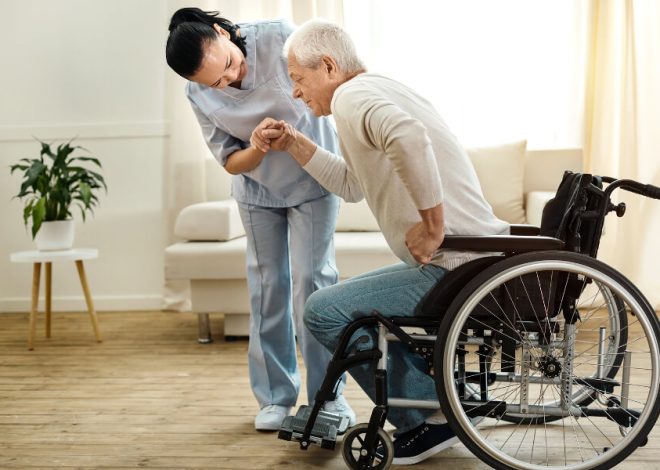What should you do if you have COVID?
Contracting COVID-19 can be a concerning and challenging experience, but knowing what steps to take can help manage symptoms, prevent spread to others, and promote recovery. This blog aims to provide a comprehensive guide on what to do if you have COVID-19, including self-care tips, when to seek medical attention like Ivermectin for sale and Ivermectin 6 mg tablet dose, and how to protect those around you.
Understanding COVID-19:
COVID-19 is caused by the novel coronavirus SARS-CoV-2 and primarily spreads through respiratory droplets when an infected person coughs, sneezes, or talks. The virus can also spread by touching surfaces contaminated with the virus and then touching the face. Symptoms of COVID-19 can range from mild to severe and may include:
- Fever
- Cough
- Shortness of breath or difficulty breathing
- Fatigue
- Muscle or body aches
- Loss of taste or smell
- Sore throat
- Congestion or runny nose
- Nausea or vomiting
- Diarrhea
What to Do If You Suspect You Have COVID-19?
If you suspect you have COVID-19 or have been diagnosed with COVID-19 through testing, here are essential steps to follow:
-
Isolate Yourself:
- Stay home and separate yourself from others in your household to prevent spreading the virus. Use a separate bedroom and bathroom if possible.
-
Monitor Your Symptoms:
- Keep track of your symptoms, including fever, cough, or difficulty breathing. Use a thermometer to monitor your temperature regularly.
-
Rest and Hydration:
- Get plenty of rest to help your body fight the infection. Drink fluids to stay hydrated, such as water, herbal teas, or electrolyte drinks.
-
Manage Symptoms:
- Take over-the-counter medications as directed to relieve symptoms such as fever, body aches, or congestion. Follow the advice of healthcare providers regarding medication use.
-
Inform Close Contacts:
- Notify anyone you have been in close contact with recently so they can take precautions and monitor for symptoms.
Self-Care Tips for Managing COVID-19 Symptoms:
-
Stay Hydrated:
- Drink plenty of fluids, especially water, to prevent dehydration and support your immune system.
-
Rest:
- Allow your body time to rest and recover. Avoid strenuous activities that could strain your respiratory system.
-
Monitor Symptoms:
- Keep track of your symptoms and seek medical attention if they worsen or if you have difficulty breathing.
-
Use a Humidifier:
- Using a humidifier or steam inhalation can help relieve congestion and ease breathing difficulties.
-
Eat Nutritious Foods:
- Maintain a balanced diet rich in fruits, vegetables, lean proteins, and whole grains to support your immune system.
-
Practice Respiratory Hygiene:
- Cover your mouth and nose with a tissue or your elbow when coughing or sneezing. Dispose of tissues properly and wash your hands immediately.
When to Seek Medical Attention:
While most cases of COVID-19 are mild and can be managed at home, some individuals may develop severe symptoms that require medical attention. Seek medical help immediately if you experience any of the following:
- Difficulty breathing or shortness of breath
- Persistent chest pain or pressure
- Confusion or inability to stay awake
- Bluish lips or face
- Severe dehydration
- New or worsening symptoms
Testing and Follow-Up Care:
-
Testing:
- If you haven’t been tested for COVID-19 yet, arrange for testing to confirm the diagnosis and determine appropriate care.
-
Follow-Up Care:
- Follow healthcare provider instructions for monitoring symptoms, continuing isolation, and seeking medical help if symptoms worsen.
-
Quarantine and Isolation Guidelines:
- Follow local health department guidelines for how long to isolate and when it’s safe to be around others again. Generally, isolation is recommended for at least 5 days after symptoms start and until fever resolves and symptoms improve.
Protecting Others:
-
Isolation Practices:
- Stay isolated until you are cleared by healthcare providers to avoid spreading the virus to others.
-
Wear a Mask:
- If you need to be around others or seek medical care, wear a mask to prevent respiratory droplets from spreading.
-
Practice Good Hygiene:
- Wash your hands frequently with soap and water for at least 20 seconds, especially after coughing, sneezing, or touching surfaces.
-
Disinfect Surfaces:
- Clean and disinfect frequently touched surfaces daily to reduce the risk of spreading the virus.
Mental Health and Well-Being:
Dealing with COVID-19 can be stressful and isolating. Take steps to care for your mental health:
- Stay Connected: Use technology to stay in touch with loved ones and seek support.
- Practice Relaxation Techniques: Deep breathing, meditation, or yoga can help reduce stress and anxiety.
- Limit Media Exposure: Stay informed through reliable sources, but take breaks from news and social media to reduce stress.
Conclusion:
Navigating COVID-19 involves taking proactive steps to manage symptoms, prevent spread to others, and promote recovery. By following isolation guidelines, monitoring symptoms, seeking medical attention when needed, and practicing good hygiene, individuals can effectively manage their condition and reduce the risk of complications. Remember, each person’s experience with COVID-19 may vary, so it’s essential to stay informed and follow healthcare provider recommendations for personalized care and support. Together, we can work towards overcoming the challenges presented by COVID-19 and promoting health and well-being in our communities.



